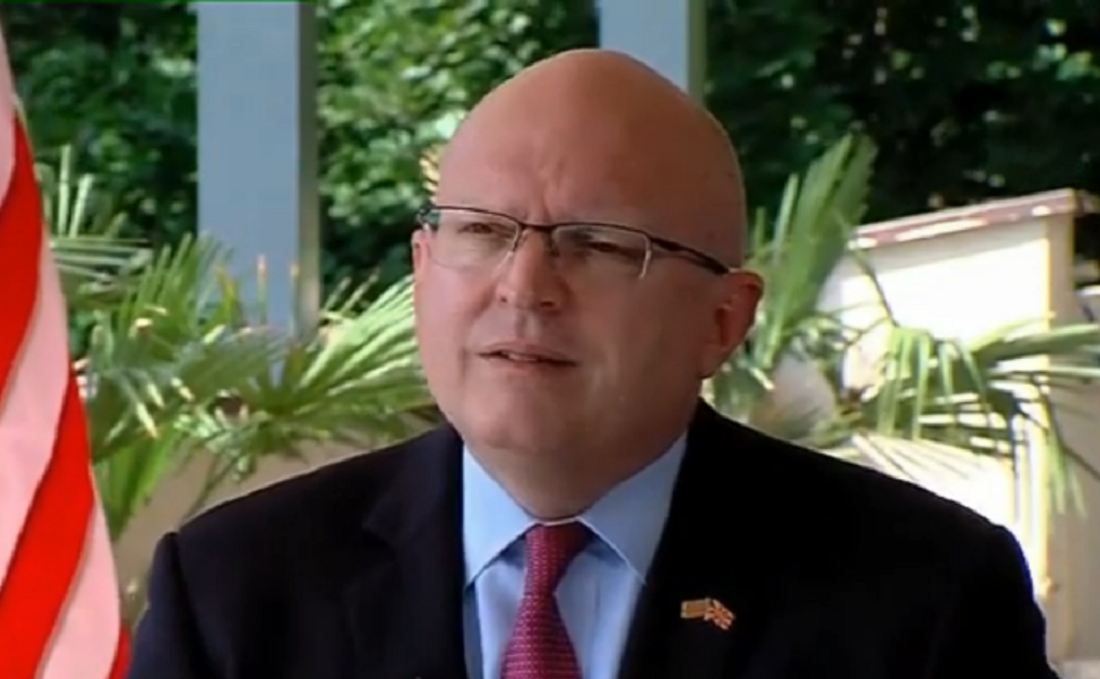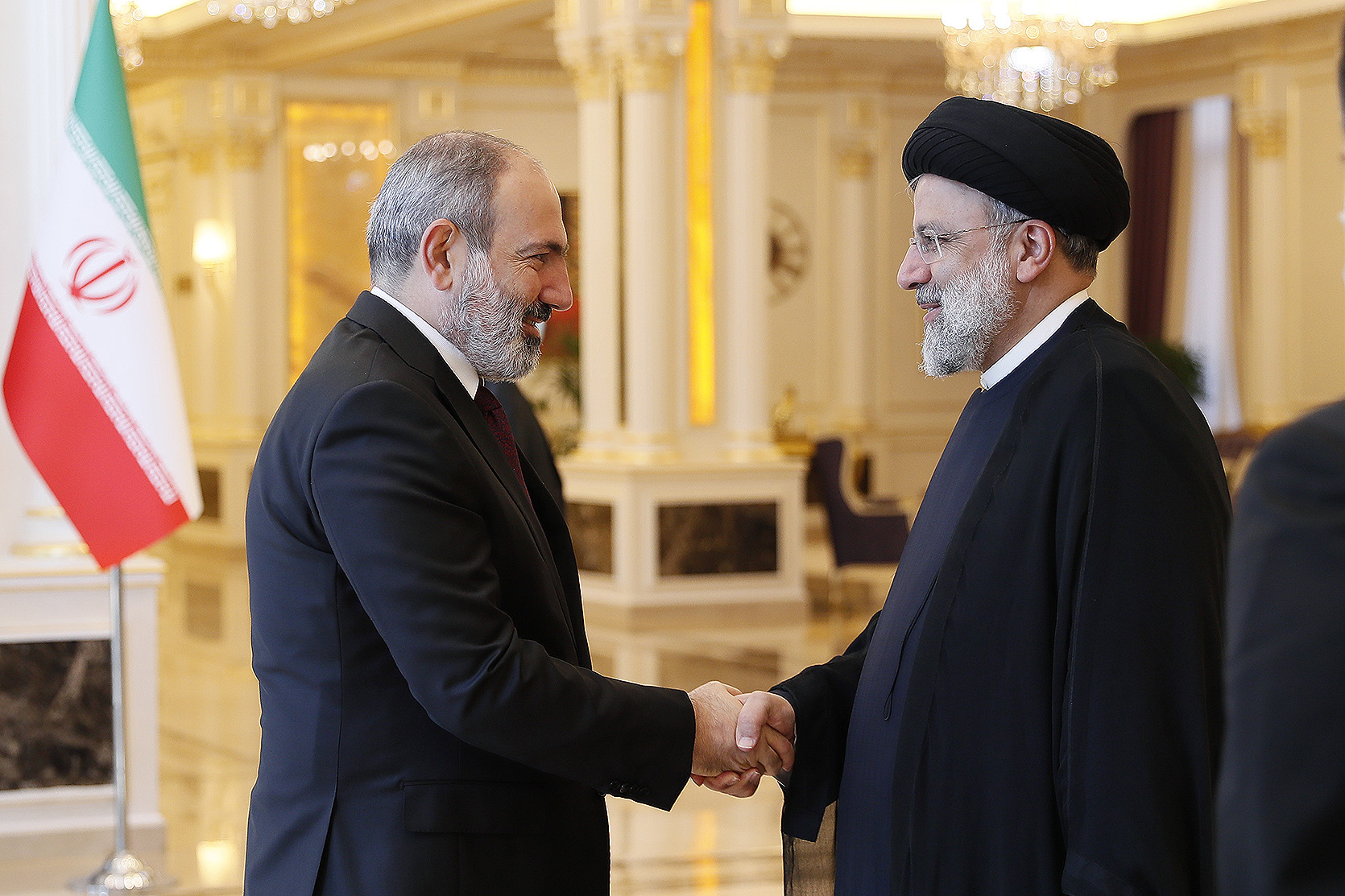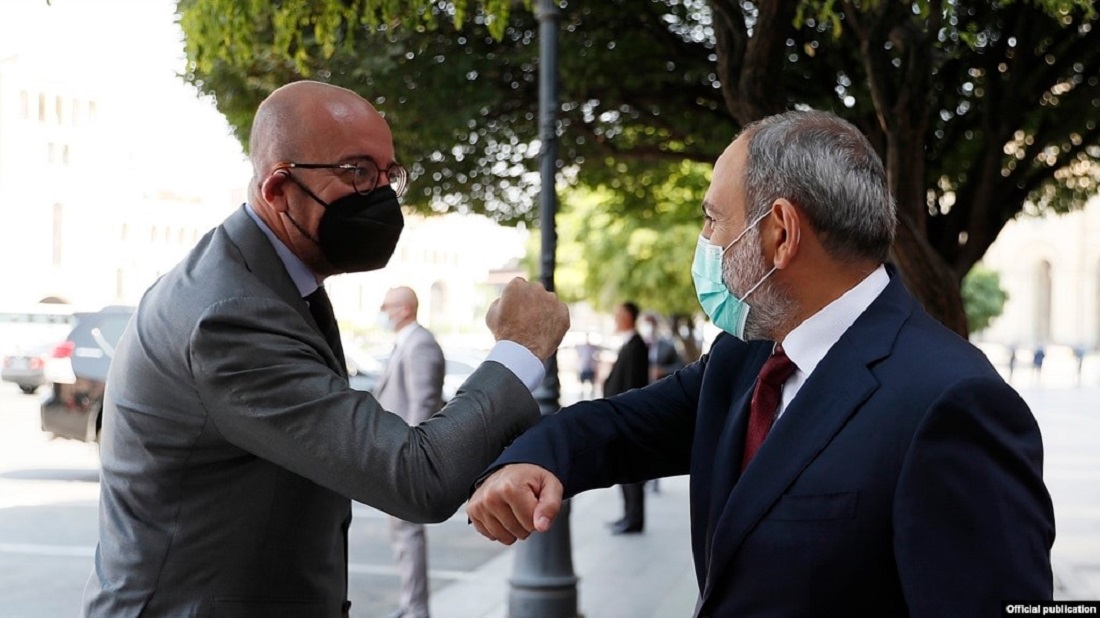Geopolitical project: How Armenia lost the war and wound up between world powers
Geopolitical processes around Armenia
The aftermath of the second Karabakh war in 2020 should have clarified the overall picture in the South Caucasus region and at least temporarily stabilized the situation. This is the effect of many if not most wars – a temporary lull and reshuffling.
But when it came to Armenia and Azerbaijan, this unwritten law did not work out. Baku’s desire to force its goals on the region and the war in Ukraine were two factors in this. The changing geopolitical situation threatens to drag Armenia into a whirlpool of forces whence there may be little hope of escape.
A detailed analysis of what is happening in the region, the main “players” and their interests, and assumptions about how events may develop.
- Signing of a peace treaty “within a few months”? Opinions from Yerevan
- “The fate of hundreds of missing persons remains unexplained” – Armenian Foreign Ministry
- Fourth Brussels meeting, with Pashinyan, Aliyev, Michel: What is the EU offering?
Post-war balance of power
The outcome of the war, predictably, changed the degree of influence of the superpowers on Armenia and Azerbaijan. The Karabakh conflict has been discussed for decades through the mediation of Russia, the United States and France. The OSCE Minsk Group acted as a platform for negotiations. And, although everyone understood that Moscow had the greatest influence of the three, the participants could not but listen to the voice of Washington and Paris.
The second Karabakh war ended with Moscow’s mediation and control. There was a feeling that the Kremlin had been able to seize all the levers that one way or another may have an impact on Yerevan and Baku. The Russian peacekeeping contingent is located in Nagorno-Karabakh. It is difficult to imagine that this will change in the near future.
At the same time, Russia has begun to strengthen its already strong positions in Armenia itself. Russian military deployments have significantly increased in the country. Despite the Kremlin’s hidden dissatisfaction with the actions of the Armenian authorities, Russia is increasing its influence on the Armenian economy, which over time can also become leverage on Yerevan.
In addition to Russia, Turkey has reason to be satisfied with the outcome of the war. Even before September 2020, Ankara had tried to wedge itself into the top three countries making decisions on Karabakh. But this didn’t happen.
The war has weakened the role of the Minsk Group and brought Ankara to the fore. Decisions on Karabakh are now made not by the Minsk Group, but by Moscow and Ankara.
What happened to the Minsk Group?
Immediately after the war, the President of Azerbaijan, Ilham Aliyev, stated that “the Minsk Group does not exist,” since there was no longer a problem which this body dealt with. Such a statement would be more logical if the war had ended with Armenia’s total loss of Nagorno-Karabakh. But Baku still does not control the entire territory of the former Nagorno-Karabakh Autonomous Region.
The aspirations of the Azerbaijani authorities are understandable. The Minsk Group established three principles as the basis for the negotiation process, including the right of peoples to self-determination. Baku is clearly not ready to discuss this issue after victory in the 2020 war.
Azerbaijan’s intent to leave the Minsk Group out of affairs was supported by Russia.
“The OSCE Minsk Group on the Karabakh resolution ceased its activities on the initiative of the US and France. Nevertheless, the Europeans recognize that three statements by the leaders of Russia, Azerbaijan and Armenia serve as the basis for the final resolution of all remaining issues,” Russian Foreign Minister Sergey Lavrov announced in June of this year.
Yet Paris and Washington not only came out for the preservation of the Minsk Group, but the White House recently appointed a new co-chairman, which caused some resentment in Baku.
Yerevan insists on the full delegation of the Karabakh issue to the Minsk Group. In conditions where each side is trying to advance its agenda, the body is actually inactive, and decisions on Karabakh and Armenian-Azerbaijani relations are made in a trilateral format. But the Minsk Group may still survive reincarnation.
- Future of Karabakh mediators: no more OSCE Minsk group?
- “There are elements of crisis in Armenian-Russian relations”: opinion
- Peacekeepers or border guards? Russian checkpoints on the roads of Armenia
Russian structure and Moscow’s interests
Under the auspices of Russia, Yerevan and Baku signed three statements in less than three years, including the ceasefire document itself on November 9, 2020. Moscow insists that these documents are the basis of the current negotiation process. In addition, any escalation in Nagorno-Karabakh is now regulated precisely by Russian peacekeepers.
However, the participation and role of Russia in all processes in the South Caucasus region are much deeper than it might seem at first glance.
The more time passes after the ceasefire in Karabakh, the more questions arise in Armenia and Karabakh for Moscow.
The first, but not the main one, concerns Russia’s policy in Karabakh. In Armenia, it is taken for granted that matters if dispute are generally decided in favor of Azerbaijan. This applies, first of all, to the territory that came under the control of Baku after the second Karabakh war. There have been two major escalations over the past year, in both cases resulting in losses for Armenia.
Thereafter, the Armenian authorities publicly demanded that Russian peacekeepers take actions to restore the former line of contact. But nothing has changed.
The Russian peacekeepers are either unable or do not intend to ensure the fulfillment of the points of the 2020 statement regarding the preservation of peace and stability.
- “Armenia offers Azerbaijan three roads through its territory” – details from an expert
- Putin-Erdogan negotiations: agreements on the region and risks for Armenia. Opinion
Russia and the “corridor” through Armenia
The second and, perhaps, the main topic that is being discussed in Armenia in terms of Russia’s policy in the region is what position Moscow takes on the issue of opening roads.
The need to open roads was noted in the November statement on the end of the war. Although there is no mention of a corridor, Baku insists that Yerevan should provide an extraterritorial road that it will not control. Thus Azerbaijan hopes to connect with Nakhichevan and Turkey via the shortest route and without paying duties.
Yerevan naturally rejects this plan. In the first months after renewed discussion it seemed that such an agenda was being promoted, first of all, by Ankara; but now this “project” seems to be more global, which the former Foreign Minister of Azerbaijan Elmar Mammadyarov is not bothering to hide:
“If they [the Armenian authorities] do not want [to provide a corridor], they will be forced by international forces, including neighbors Russia and Turkey. Because a geopolitical project of this magnitude cannot be prevented.”
The issue of the corridor has never been raised in Russia. The Kremlin says that the trilateral working group headed by the vice-premiers of the three countries is discussing the issue of opening transport routes in the South Caucasus region.
However, the Russian authorities have not made clear statements that the possibility of opening an extraterritorial corridor is not being considered.
- “Independence is like health – it needs to be taken care of every day” – Pashinyan
- Regional processes without taking into account Armenian interests? Opinion
As opposed to Moscow’s silence, consensus in Armenia seems to be that Russia itself wants control over such a road.
“Russia itself wants a corridor through Armenia. Roads to Europe are closed for Russia. And Moscow will want to use this particular route in order to somehow reduce the negative impact of sanctions. Now we are actually opposing the Russian-Azerbaijani-Turkish alliance,” political scientist Stepan Grigoryan says.
According to Grigoryan, a “corridor” under Russian control would allow Moscow to have additional leverage over Yerevan and Baku.
Another component of the corridor logic is the potential threat of Armenia being cut off from Iran. It is no coincidence that Tehran has been declaring for about two years that changes in the political geography of the region are unacceptable.
It is possible that Brussels will try to replace Russian gas with Iranian, and in this case, transport through Iran, Armenia, Georgia and the Black Sea could become a potential route.
“There is a country that could 100% replace Russia on the European market. This country is Iran. It is the second country in the world in terms of gas reserves. Iran increases volumes every year. Iran could replace Russia in the European gas market if it were not for logistical problems,” Rustam Tankaev, a representative of the Russian Chamber of Commerce and Industry, maintains.
Moscow obviously cannot ignore the Iranian factor.
Brussels and Washington attempting to regain ground
A few months after the end of the second Karabakh war, the US and the EU began trying to regain lost positions. Whereas before the Karabakh issue and thus the Armenian-Azerbaijani agenda was largely dealt with by France, the process is now in the hands of the EU leadership.
Armenian Prime Minister Nikol Pashinyan and Azerbaijani President Ilham Aliyev have already held several meetings in Brussels, during which they came to some agreement on the most important issues. The outcome of the latest talks is a decision to start negotiations toward a peace treaty in the near future.
Given its war in Ukraine, Russia has simply not been as present on these issues, and the vacuum has been filled by the EU.
As for the interests of the West, this boils down to its desire to reduce Russian influence.
The best way to do this could be a final resolution of the Karabakh conflict and the normalization of Armenian-Azerbaijani relations. What it costs the countries involved is a secondary issue for Brussels.
“Today the international community is again telling us to slightly lower our bar on the status of Nagorno-Karabakh, and greater international consolidation around Armenia and Artsakh will be ensured. Otherwise the international community says: “Please do not place your hopes in us, not because we do not want to help you, but because we cannot help you,” Nikol Pashinyan said.
As for the unblocking of roads,Armenia’s Western partners are also interested in preventing an extraterritorial corridor under Russian control.
It is no coincidence that Brussels promised Armenia unprecedented financial assistance in the amount of $2.6 billion until 2025, a significant part of which will go to the construction of the North-South transport highway and the improvement of the Syunik region of Armenia.
The North-South Transport Corridor is the largest transport project in Armenia. According to preliminary estimates, the 490-kilometer highway is estimated to cost more than two billion dollars.
The EU will provide 600 million euros for its construction. From the north, the highway will connect Armenia with Georgia and through it provide access to the Black Sea and European countries. From the south, the highway will connect the country to Iran. Armenia can thus become a transit country.
As a result, a paradoxical situation has developed in which the interests of Armenia are closer to the EU’s agenda rather than Russia, Armenia’s strategic partner.
Yerevan may be left on the sidelines when regional leaders make decisions instead. When the stakes are extremely high, Yerevan has to hope for a change in the geopolitical situation and the more decisive participation of Iran.
Geopolitical processes around Armenia





















